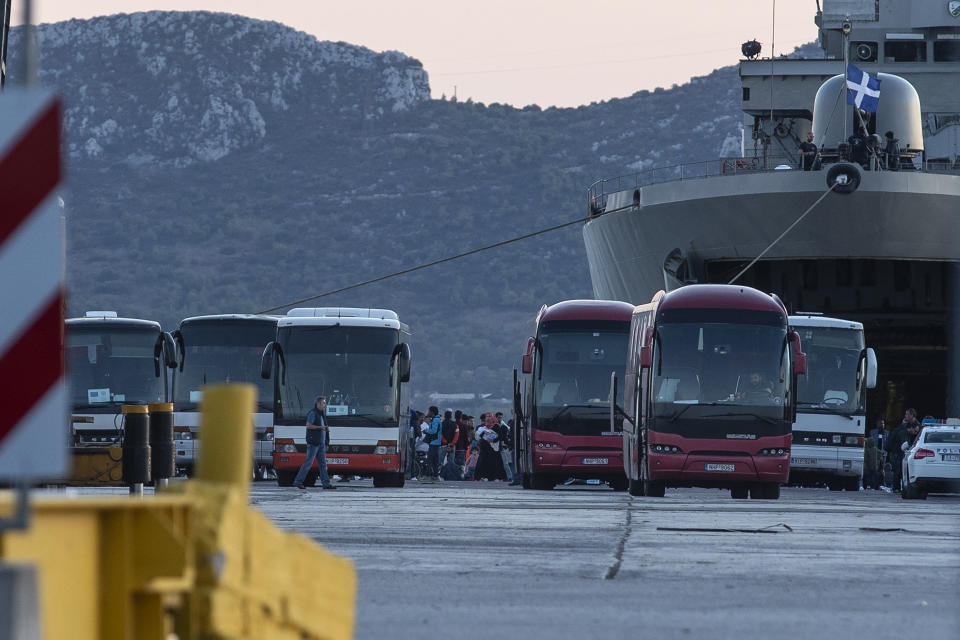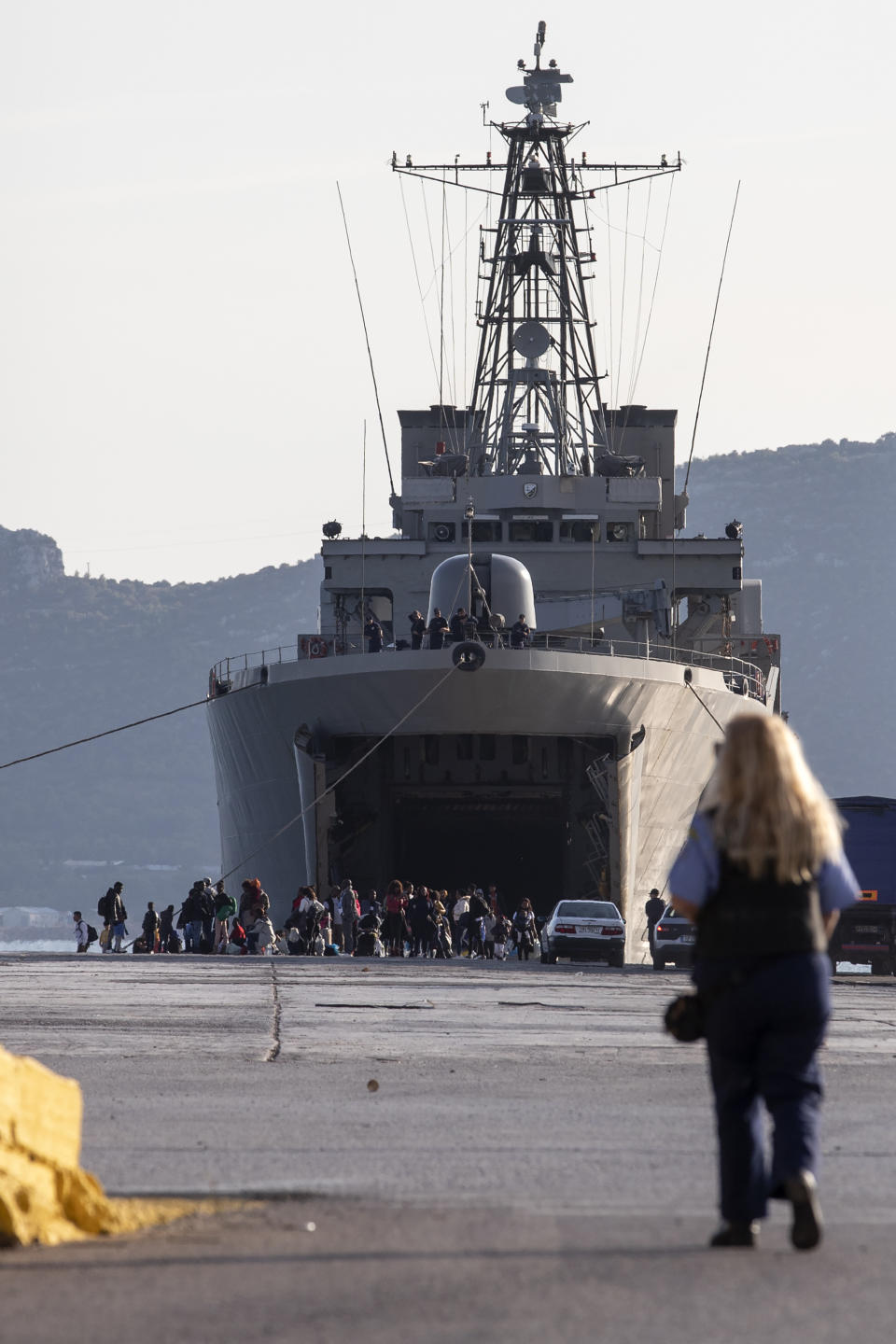Auditors urge EU to quickly fix migrant policy shortfalls
BRUSSELS (AP) — Auditors on Wednesday urged the European Union to improve its approach to easing migrant pressure on Greece and Italy as people languish in camps on the Greek Islands, and to draw lessons from its shortcomings before a new crisis hits.
Well over 1 million people arrived in Europe in 2015, most of them fleeing conflict in Syria. Greece and Italy were overwhelmed, and the arrivals sparked a political crisis as nations bickered over who should take charge and whether to help.
As pressure from member countries built for a quick response, the EU came up with a series of stop-gap emergency measures and funds. Greece has received around 2.2 billion euros ($2.4 billion) since then; Italy around 1 billion ($1.1 billion).
Unveiling a report Wednesday on the EU’s migrant response, European Court of Auditors member Leo Brincat said now is the time “for stock-taking, putting the house in order, and even taking the necessary remedial action.”
“It’s better to take action at a time when there is no peaking of the migration crisis,” Brincat said, because poor timing “is bound to lead to knee-jerk reactions, and knee-jerk reactions don’t always lead to the most judicious actions.”
Among the EU measures was a quota plan initially meant to share 160,000 refugees in Greece and Italy with their European partners. But member countries only agreed to relocate 98,256 of them, and in the end, just 34,705 people found new homes.
The auditors said the plans “underperformed” chiefly because the Italian and Greek authorities were unable to quickly identify candidates or encourage them to apply to be moved.
Fast-track asylum processing meant to identify eligible people in the Greek islands for return to Turkey was taking on average 215 days last year, instead of just a few days, the report said.
The auditors said some people in the Samos camp had been there waiting for two years, and that others who arrived in 2018 were given interview dates as late as 2023.
In Italy, asylum applications lodged in 2015 took on average over four years to reach the final appeal stage.
Among their recommendations, the auditors highlighted the need to improve accommodation on the Greek islands, speed up the asylum claims process, and enforce return procedures, even though they acknowledge that migrants have a right to due process.
They said that not enough migrants deemed ineligible to stay are actually being sent back. Under the EU’s agreement with Turkey, only 1,806 people were returned from the Greek islands. Returns in 2018 stood at 322; less than half the number in 2017.
The shortage of migration experts, the auditors said, could be due in part to the fact that people sent from member countries to work with the EU’s asylum office and border guard agency are deployed for less than two months, on average.
The EU’s executive arm, the European Commission, stood by its actions and insisted that Europe is now better equipped than ever to provide support to countries under pressure.
“The swift and determined action of the commission, and the collective work we have undertaken at EU level, has really brought a step change when it comes to this area,” commission spokeswoman Tove Ernst said.
Asked why conditions remain so bad in the Greek islands despite the billions of euros provided, Ernst said we “continue to call on the Greek government to deliver more efficient asylum procedures. This is ultimately the responsibility of the Greek authorities. We cannot replace them.”

